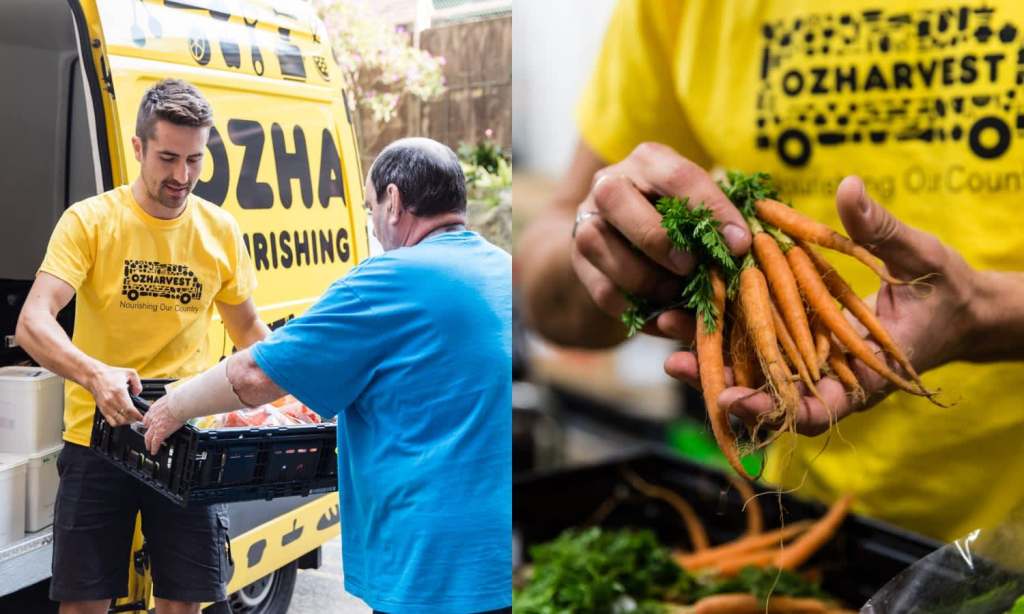The Latch has partnered with Suncorp Bank to deliver sustainability content that helps helps our readers drive positive action in their every day lives.
The stats are startling: Globally, one-third of all our food produced is lost or wasted. That’s a whopping 931 million tonnes of food, thrown out. Australia alone accounts for 7.6 million tonnes, which is about $36.6 billion annually.
The damage? Contributing to climate change. Food waste accounts for a steep 8-10% of the world’s greenhouse gases. That amount is more than the emissions caused by the plastic we produce (3.8%), the aviation sector (1.9%) and from extracting oil (3.8%) — combined. If you haven’t cottoned on by now: food waste is a big problem.
Thankfully, some organisations are working hard to change these stats — one of them being OzHarvest. Founded in 2004 by Ronni Kahn AO after she noticed a huge volume of food going to waste from her events business, OzHarvest rescues food that would ordinarily be tossed and gives it to people in need.
Today, OzHarvest has offices all around Australia, and works to educate and inspire people to change their food waste within their own homes. Through its work, by 2030, it hopes to reach a national target of cutting food waste down by half.
View this post on Instagram
So, how can you help? Ahead, we’ve shared four ways you can help OzHarvest with its mission.
Donate
If you have the means to, consider donating to OzHarvest. Just $1 will deliver two meals to those in need, while $50 will help the team make and distribute 100 meals. And, if you need more incentive than that, charity donations of $2 or more to OzHarvest are completely tax deductible in Australia. The company prides itself on its donation promise, to use your donated funds responsibly.
Volunteer
Yet another way to fight the war on waste is to volunteer your time by joining OzHarvest’s ‘Yellow Army”. And with volunteering shown to relieve stress, increase your self-esteem and alleviate symptoms of depression, why not? To get started, fill out an online application form and then attend an info session. Once that’s done, you’ll need to organise a police check (OzHarvest offers them discounted to $19.95) and pay an admin fee of maximum $20, which will cover the cost of the uniform.
View this post on Instagram
Volunteers can participate as often or as little as they wish (with the exception of OzHarvest Market in Waterloo, where volunteers are limited to max of two sessions per week). OzHarvest volunteers do a variety of jobs, like manning the markets in Waterloo and Kensington, packing hampers and organising logistics at the hamper hubs, and washing dishes in the kitchens. More info on volunteering with OzHarvest, here.
Give Food
Next way to help? If you notice a large chunk of catering (good quality, of course) left over in your office, suggest to the organisers they donate it. OzHarvest is located in every state of Australia (you can find your local chapter, here) and collects all perishable and frozen food, including dairy, fish and meat to pass on to those in need. It’s really a win-win-win — here’s why:
- OzHarvest will pick up your food for free, and the business can then get rid of the food they might otherwise have to deal with throwing out.
- Businesses who donate to OzHarvest are protected from civil liability by the law, so they won’t be held liable — all they ask is that the food picked up be deemed ‘food safe’. That means it needs to be refrigerated and stored properly.
- And finally, the business can be happy knowing it did a good deed; the food will then be delivered to charity agencies in the local area. More info on giving food to OzHarvest here.
Spread the Word
Finally, the easiest way to support OzHarvest is to spread the word about what they do. Tell office managers when you see they have leftover food, tell people looking to volunteer and tell someone looking to open a new bank account.
And don’t only spread the word about OzHarvest, but share your knowledge about food waste’s role in climate change, too, so that change can be made in individuals’ homes. The more people who know about the impact they’re inadvertently making on the planet, the more change will be made. How good will that be?
Read more stories from The Latch and subscribe to our email newsletter.







